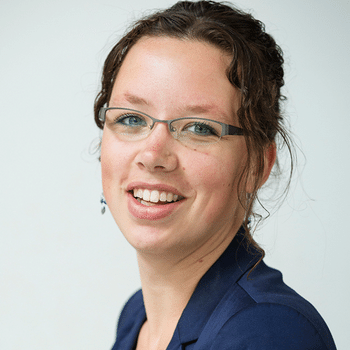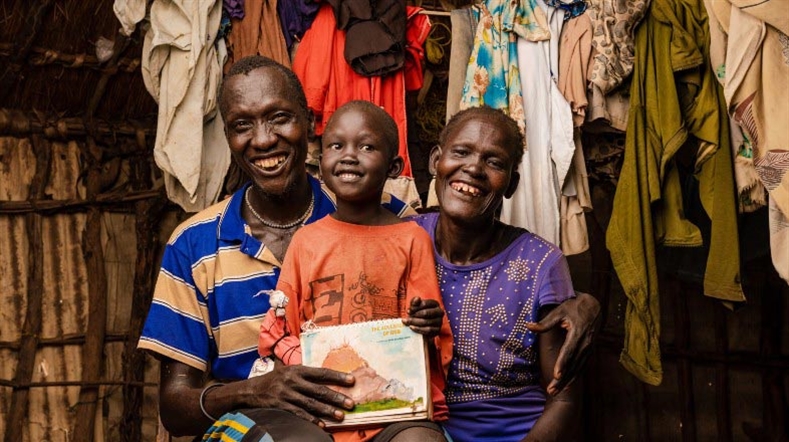
TNO's view of 2030: 50% reduction in lifestyle-related diseases
Obesity and type 2 diabetes are examples of diseases on which a change of diet and exercise can have a profound effect. Yet our convenience-oriented society does not necessarily encourage healthy eating and exercising. As a consequence, the incidence of lifestyle-related diseases has been increasing sharply in recent years. How do we provide people with a healthy environment and help people adopt a more healthy lifestyle and also keep a better 'health in illness'? TNO looks ahead to 2030.

‘We know that most lifestyle-related chronic diseases are partly caused by factors in people's living environment and their behaviour.’
TNO's goals for 2030
Numerous innovations have been developed over the past nine decades, each with its own impact. TNO also sets ambitious goals for the coming decade to achieve together with partners. With these goals for 2030, TNO contributes to social issues and the earning capacity of the Netherlands.
Focus on health
Hanneke Molema and Marloes van der Klauw, both consultants at TNO's Healthy Living unit, are working on solutions with their colleagues. 'For a long time we have been working on innovations to support a healthy environment and lifestyle that contribute to a better "health in illness" and help people in making healthy choices', says Hanneke. 'And it's also about preventing illness,' Marloes adds, 'because we know that most lifestyle-related chronic diseases are partly caused by factors in people's living environment and their behaviour'.
TNO and its partners therefore look beyond the healthcare system. Hanneke: 'However well-intentioned, healthcare focuses on diseases and their treatment. A focus on health and prevention in the broad sense means you also have to look at poverty, living environment, mobility and whether a person works at night or during the day, for example'. Air quality is another factor. 'In some workplaces this is strictly monitored, but what about at home? It is difficult for a GP to talk about the mould in someone's home if he only has 10 minutes. But if you don't do something about someone's home, you are only treating the symptom (the complaint) and not taking away the cause,' Hanneke says, 'so people stay ill'.
Complex puzzle
Actually, society as a whole should be set up in a healthy way, because everything is connected like a complex puzzle. 'All transitions are ultimately related to health', says Marloes. 'On top of that, all of the social challenges (energy, sustainability, decline in the proportion of young people in society, urbanisation, etc.) currently affect the most vulnerable groups in particular - and that also impacts their health. So we need to ensure that a healthy lifestyle and living environment are accessible to this growing group of vulnerable people'.
Because this is such a multifaceted task, in which many parties (i.e. government, businesses and citizens) will have to work together, TNO is ideally positioned to steer this transition. 'In our system approach, we involve many external organisations', says Hanneke. 'The government, for example, is contacting us more and more often on this subject'. The Ministry of Health, Welfare and Sport has asked TNO to explore with partners how lifestyle improvement can be implemented in healthcare in the coming years.
Download the paper Personalised Health
Read all about optimising health through a person-centred approach.

‘Besides preventing human suffering, it will cut healthcare costs in fighting these diseases.’
Work to be done
'Health inequalities in the Netherlands have only increased in recent years, so there is still plenty of work to be done', says Marloes. 'In two to three years, we hope to have a better understanding of the correlation between people, behaviour and environment to help us explain and combat chronic diseases. This will give us some tools we can use together with our partners'. Technology will play an important role. Hanneke: 'For example, smart sensors that help measure health in body and environment, but also digital technologies that combine data from different sources while respecting privacy, and that can support patients with their health'.
What will that lead to in 2030? According to Sandra Eikhout, market director of TNO Healthy Living, it will have a tremendous impact if we can reduce the incidence of lifestyle-related diseases by 50%. Sandra: 'Besides preventing human suffering, it will cut healthcare costs in fighting these diseases. What is even more important is that people will be living more healthily, making them more employable in society. We want everyone to remain capable of participating, because that is essential for a person's sense of purpose and because we will continue to face a tight labour market due to an ageing population. Especially if we want the big transitions to be successful.'
TNO is always looking for people who dare to push boundaries, who dare to dream of a future in which for example we can provide people with a healthy environment. We are looking for smart all-rounders who are able to make science applicable, who know how to use all the innovative technological developments to make the world more sustainable. Now is the time to bring your talent and your ambition to TNO.
Explore the possibilities to leave your mark on our time.
TNO is always looking for timesetters, people who dare to push boundaries, who dare to dream about a future in which, for example, the number of lifestyle-related diseases has been halved. We are looking for smart people and all-rounders who are able to make science applicable, who can use all innovative technological developments to make the world healthier. Now is the time to deploy your talent and ambition at TNO.
Get inspired
Nour's World: accessible mental support for children worldwide


TNO innovations addressing mental health of children



